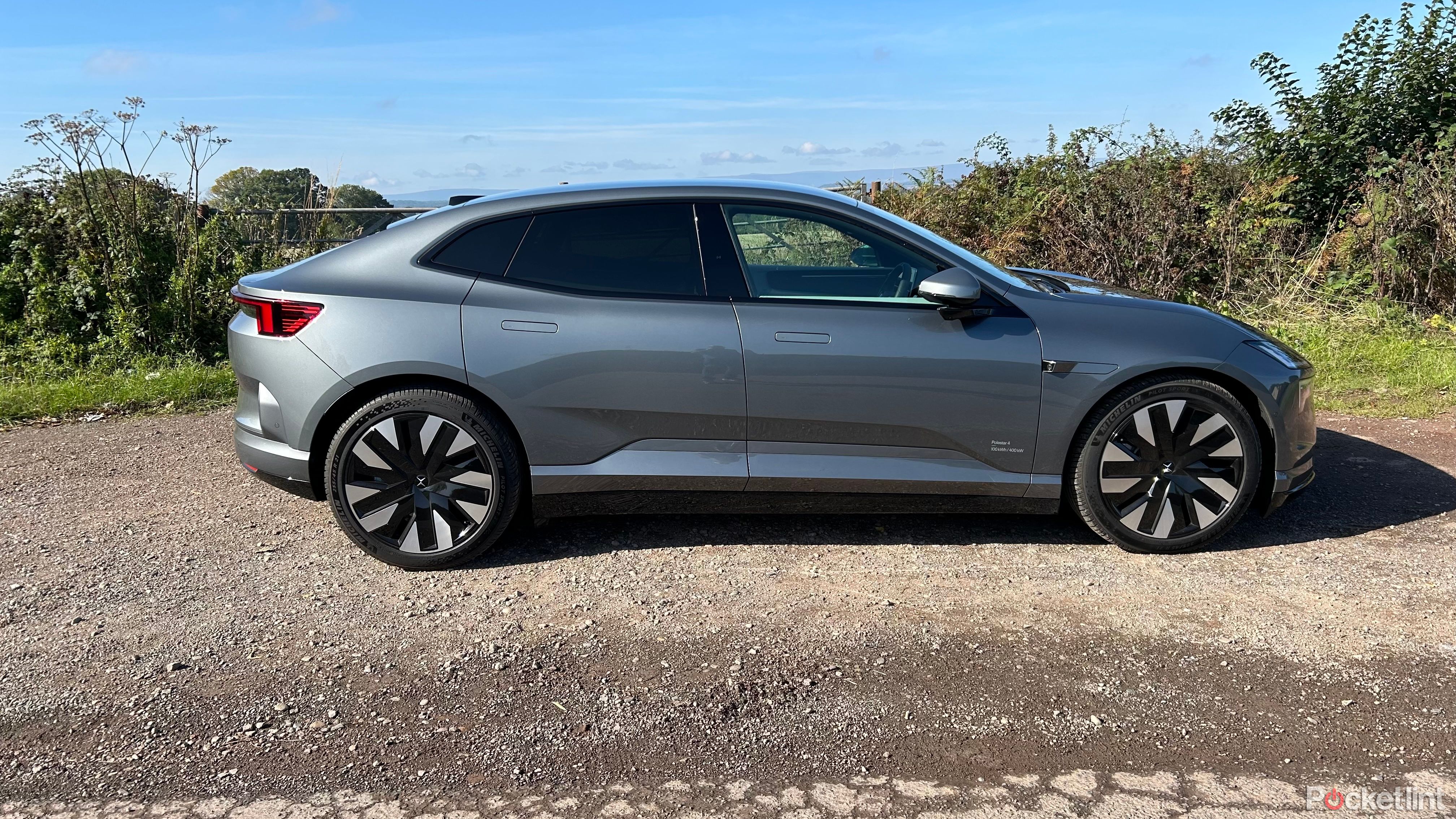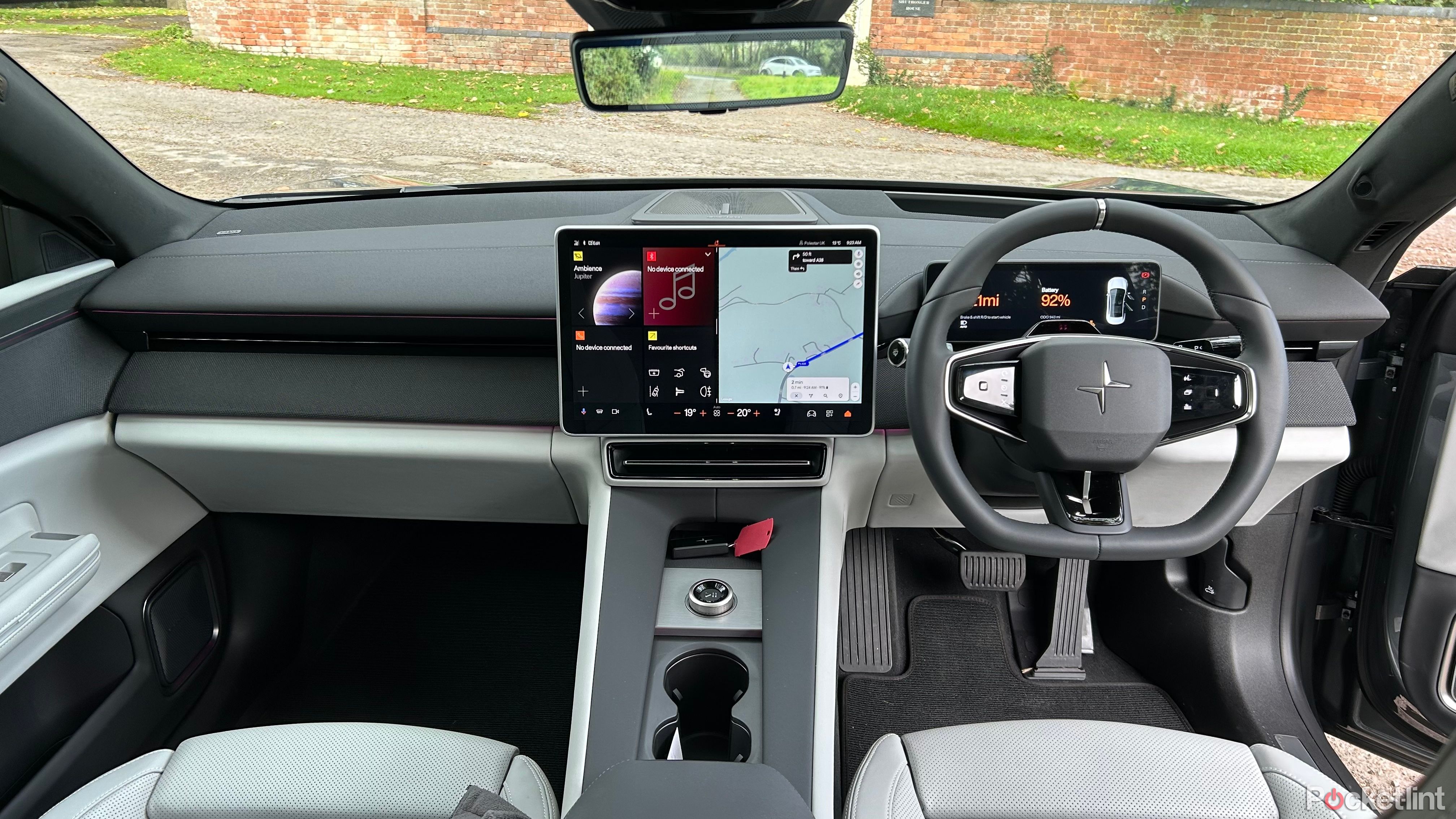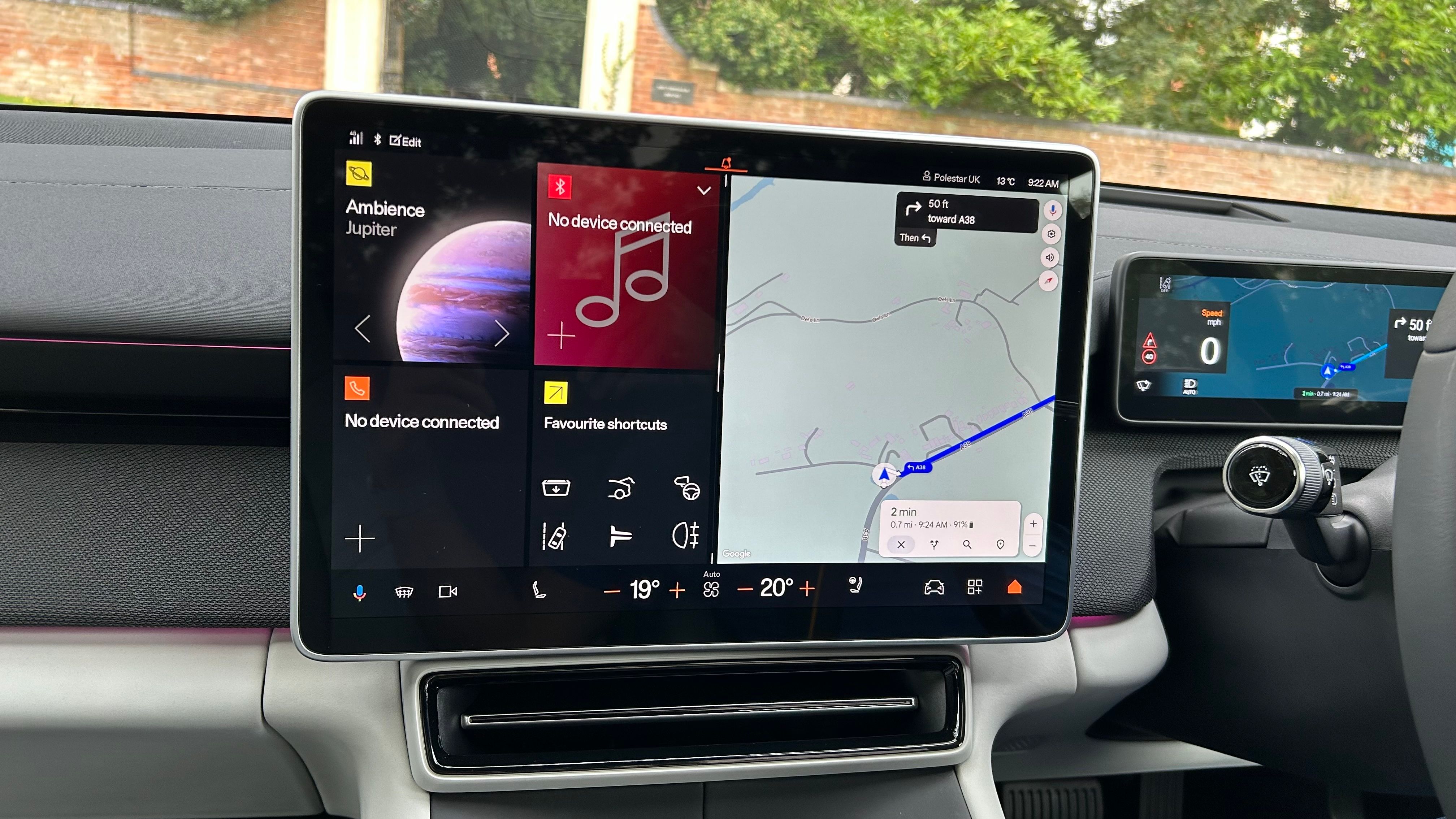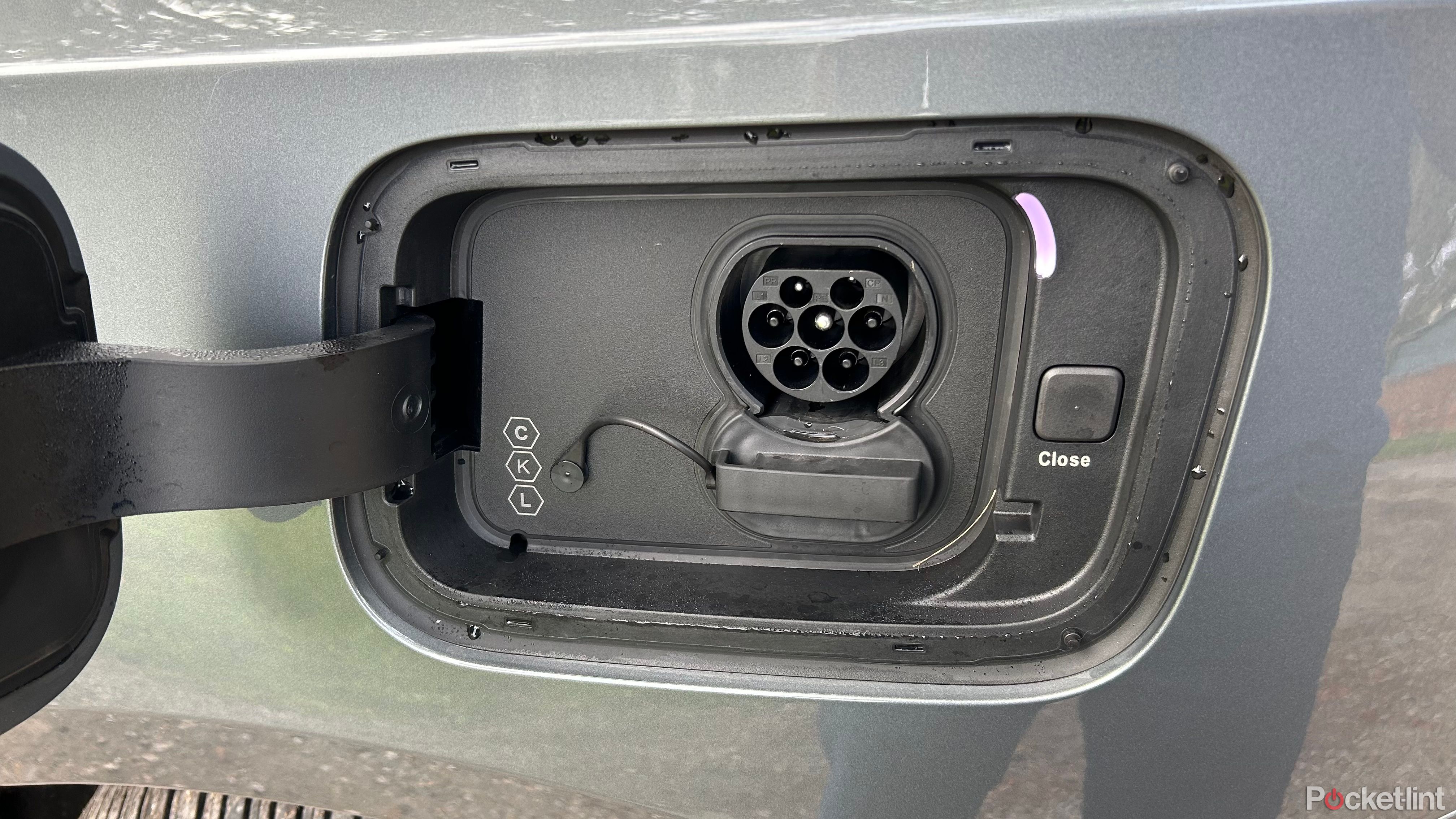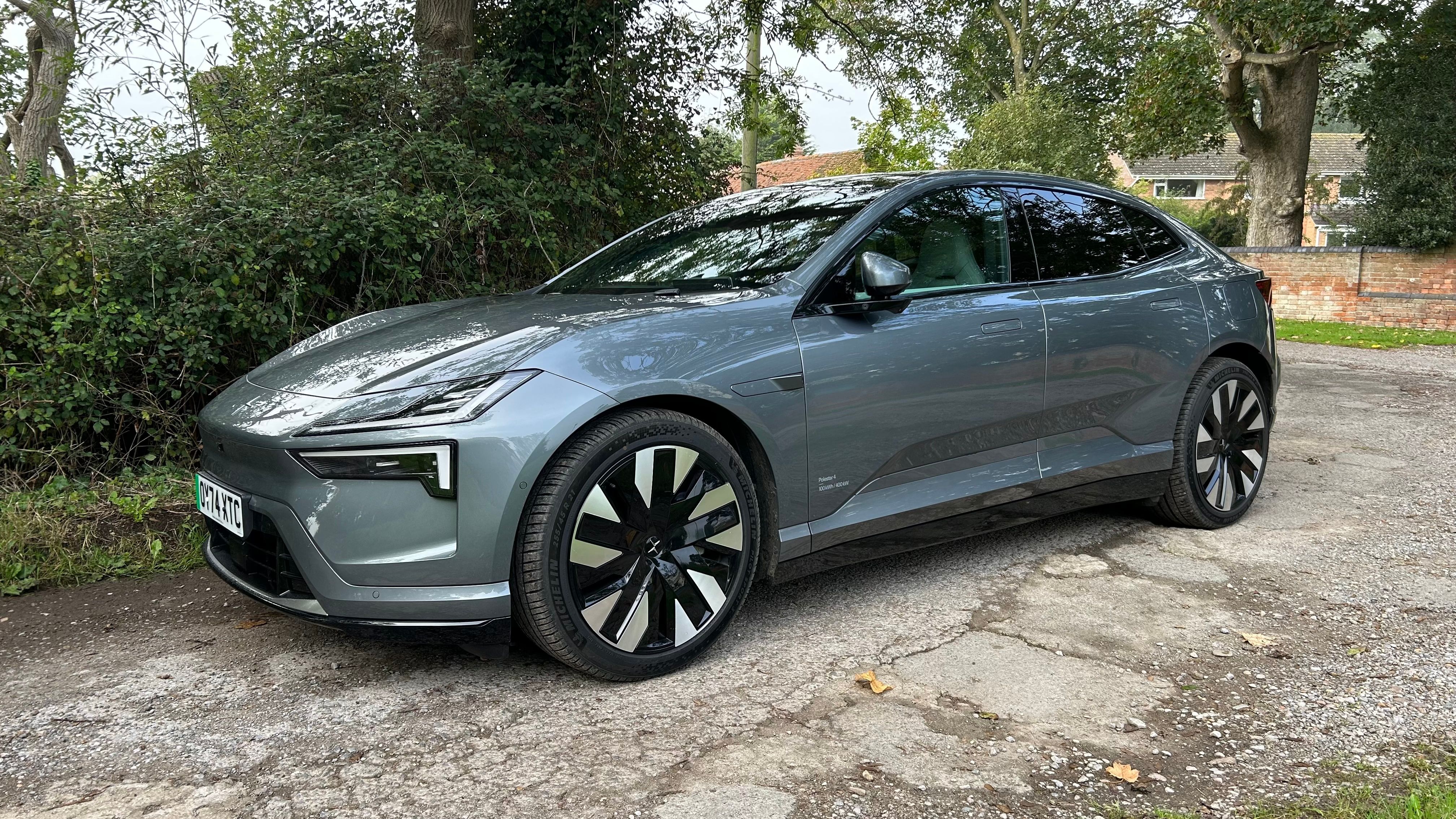Key Takeaways
- No rear window adds curiosity appeal as well as being surprisingly easy to live with thanks to technology.
- Its most likely major rivals will be the likes of the Porsche Macan Electric, Audi Q6 e-tron or and the Tesla Model Y.
- The Polestar 4 comes in single- and dual-motor variants, with range peaking at 379 miles for the Long Range Single motor edition.
I’m all for automakers trying something a little bit different and with the Polestar 4, the main thing that sets it apart is the lack of a rear window. While that has been grabbing the headlines, the Polestar 4 has a lot of other interesting features, which could prove tempting for the same people who’d normally head in the direction of the Porsche Macan Electric, the Audi Q6 e-tron, the BMW iX3 or, perhaps, the Tesla Model Y.
Polestar’s parent company, Geely, is getting good value out of the SEA platform this car sits on, as it’s also used for the Volvo EX30 and Smart #1. Considering that the Polestar 4 feels more substantial and is, indeed, slightly chunkier than the aforementioned Tesla Model Y, Polestar likes to call the body style ‘SUV coupe,’ but I’m happy with calling it, er, quirky. Considering the unorthodox styling, this is a spacious five-seater, with plenty that will make it appealing to buyers with a family.

Recommended
Polestar 4
The Polestar 4 is a bit of an automotive curio, but it has a lot going for it. There’s impressive performance, lots of range and Pilot, Pro and Plus pack options that allow it to be tailored to suit different owners. While the styling might work for some, it might prove an acquired taste for others. Overall, it’s a success.
- Premium feel you?d expect from Polestar
- Dual motor car offers plenty of grip and performance
- Surprisingly spacious inside considering the exterior stance
- Styling could prove to be divisive for some
- Software will be improved via OTA updates
- Digital rearview mirror can be problematic for spec wearers
Price, specs, and availability
The Polestar 4 comes as a Long Range Single motor edition, costing from £59,990 (approximately $80,000), while the Long Range Dual motor model seen here is £66,990 (around $89,000). Optional Pilot, Pro and Plus packs will add extra to the asking price, depending on owner requirements.
Design and Build
Less glass, more class
Credit where it’s due, I think Polestar is really trying hard to make itself stand out as a brand, and the lack of a rear window for the 4 is a bold move. However, the rest of the car is inviting enough, but it’s not quite as edgy as the sort of thing Kia is doing with its latest crop of models, like the EV9 for example. Nevertheless, I like the minimalist Scandinavian-flavored lines of the Polestar 4. What’s more, the low-slung roofline that swoops down to the sizable trunk still offers plenty of space on the inside.
Viewed from the side, the Polestar 4 looks cool enough. I especially like the way the black sill trim cuts up into the door panels, meaning there’s a little more going on than making it plain old slab-sided. Both the front and rear ends are instantly recognizable as Polestar, and I like the subdued but classy exterior colors being offered for the 4. The sizable 22-inch alloys work to great effect, too, and also mean that the Polestar 4 sits comfortably above the ground, allowing it to get over speed bumps without stressing.
Credit where it’s due, I think Polestar is really trying hard to make itself stand out as a brand, and the lack of a rear window for the 4 is a bold move.
A smarter interior
Premium cockpit appeal
In the same way that Polestar is great at capturing a premium feel with its exterior designs, I found the cockpit of the 4 a fantastic place to sit. There’s not too much going on for starters, with a minimalist display in front of the steering wheel and most of the functionality sitting within the central landscape touchscreen. This includes adjusting the likes of door mirrors, steering column, and climate control vents, which isn’t going to appeal to everyone. Once I’d got everything set up and saved though, it all worked well enough.
I also got into the back seats to see how the effect of no rear screen worked out. It’s dark back there, although a panoramic glass roof lifts the mood somewhat. As with the front seats, comfort levels are high, though, and the seat coverings, plus well-made fixtures and fittings, made it feel a bit like I was sitting in the back of a limo. Considering the Polestar 4 is presumably aimed at buyers with kids, though, I’m not sure how well it’ll go down with little ones. On the upside, there’s plenty of space and generous headroom front and back. Trunk space is good too, at 526 liters.
The technology breakdown
Lurking software issues
Although I enjoyed driving the Polestar 4, my test car did have some software issues that started with the Google-based sat nav behaving weirdly. This was soon followed by the appearance of the “A fault is detected in the car system. Take immediate action and contact Polestar Customer Support” icon on the dash. The car didn’t fail to operate, but it did seem to behave oddly. The climate control also seemed a little wacky during my time in the car.
Later, I asked if the Polestar team had managed to carry out any type of diagnostic inspection afterward. The company told me it would continue to refine the software with OTA updates. Bad luck, maybe, or perhaps it was just me? Aside from that, the cabin of the Polestar 4 is a great place to be, with an excellent use of colors and fonts that make the user experience an otherwise enjoyable one. The bulk of car commands and controls are done via the central touchscreen, supplemented by plenty of buttons on the steering wheel. As with other Polestar models I’ve driven, the interior was made all the more enjoyable to experience thanks to the Harmon Kardon audio system.
Battery, range and performance
Biggish battery delivers range
One of the Polestar 4’s biggest selling points is the very respectable range, which on the dual motor model I tested promises up to 369 miles with up to 200kW charging capacity. That’s great for anyone who doesn’t like plugging in frequently or who covers long distances on a regular basis. The 94kWh battery is well-matched to the dual motor model, delivering 544 hp to play with and getting lots of grip on all four wheels.
I can’t really fault my driving time with the Polestar 4. It sits beautifully on the road and the stance is beefy enough to give plenty of confidence to push it through the corners on country roads. This is even more noticeable thanks to the adjustable dampers and steering feel, which adds extra interest for anyone who considers driving EVs to be mundane and unrewarding. Range and Performance modes add both flexibility and extra spice to the driving mix, too.
I can’t really fault my driving time with the Polestar 4. It sits beautifully on the road and the stance is beefy enough to give plenty of confidence to push it through the corners on country roads.
Meanwhile, highway driving is effortless, with more than enough power on tap for moments when you need to quickly get past someone, or zip out at junctions. I even got on fine with the lack of rear window. As a driver who wears glasses, I don’t find digital rearview mirrors too agreeable, but the one in the Polestar 4 is impressive. I made good use of the different brake regen options, which is another way to make EV motoring a little bit more interesting. Overall, the Polestar 4 is a sweet thing to sit behind the wheel of.
Should you buy the Polestar 4?
My Polestar 4 test car might have been having a bad day on the software front, but aside from those issues, I loved driving it. While I’m not entirely sure if the lack of a rear window idea will catch on, there’s no doubt that it’s a talking point and will bag the Polestar 4 plenty of interest. Aside from that, there’s plenty of space, lots of comfort, and it’s very practical too. Add in the impressive range of any of the model variants and the Polestar 4 makes a strong package.
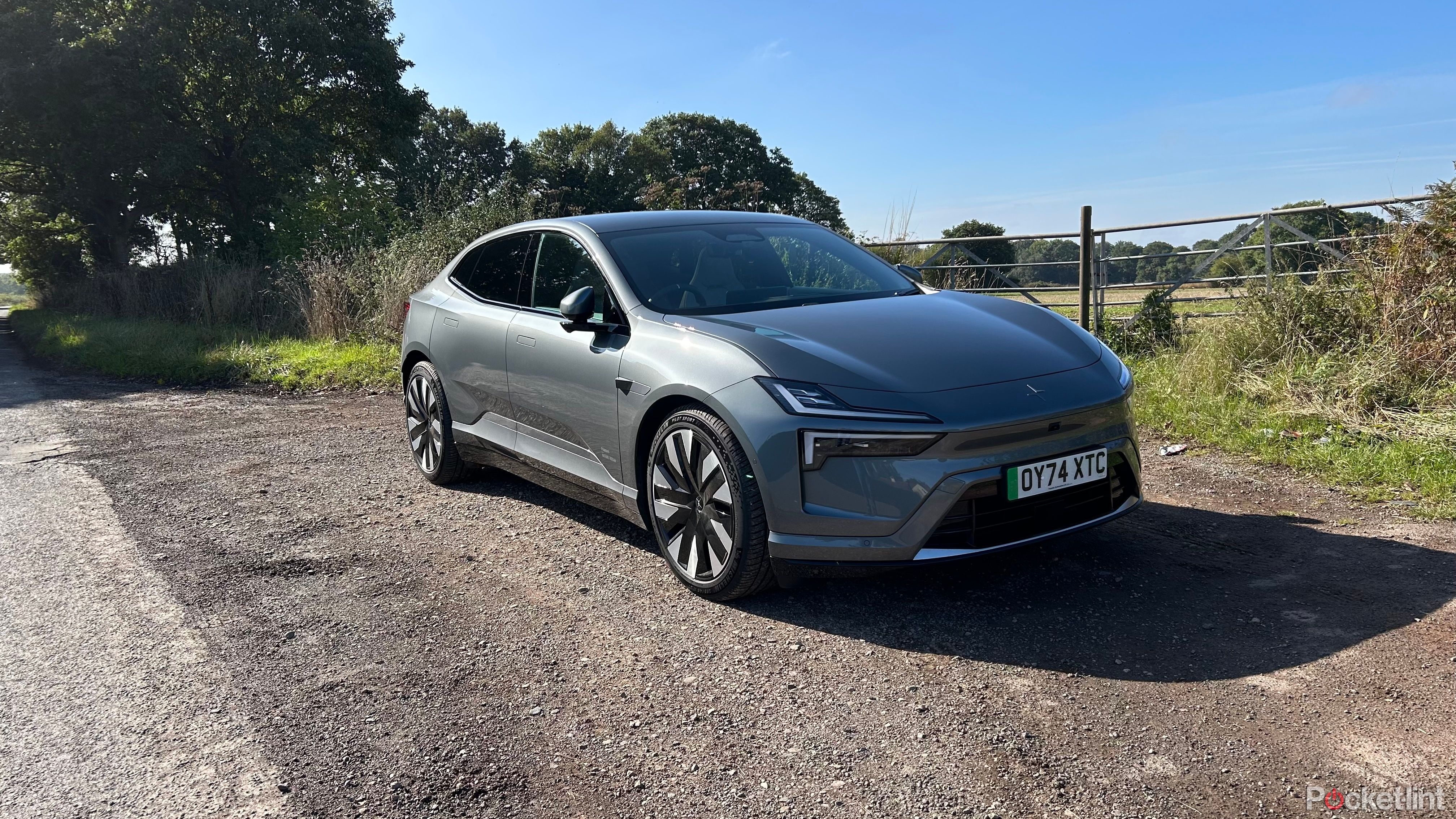

Recommended
Polestar 4
Trending Products

Cooler Master MasterBox Q300L Micro-ATX Tower with Magnetic Design Dust Filter, Transparent Acrylic Side Panel, Adjustable I/O & Fully Ventilated Airflow, Black (MCB-Q300L-KANN-S00)

ASUS TUF Gaming GT301 ZAKU II Edition ATX mid-Tower Compact case with Tempered Glass Side Panel, Honeycomb Front Panel…

ASUS TUF Gaming GT501 Mid-Tower Computer Case for up to EATX Motherboards with USB 3.0 Front Panel Cases GT501/GRY/WITH Handle

be quiet! Pure Base 500DX ATX Mid Tower PC case | ARGB | 3 Pre-Installed Pure Wings 2 Fans | Tempered Glass Window | Black | BGW37

ASUS ROG Strix Helios GX601 White Edition RGB Mid-Tower Computer Case for ATX/EATX Motherboards with tempered glass, aluminum frame, GPU braces, 420mm radiator support and Aura Sync

CORSAIR 7000D AIRFLOW Full-Tower ATX PC Case â High-Airflow Front Panel â Spacious Interior â Easy Cable Management â 3x 140mm AirGuide Fans with PWM Repeater Included â Black


